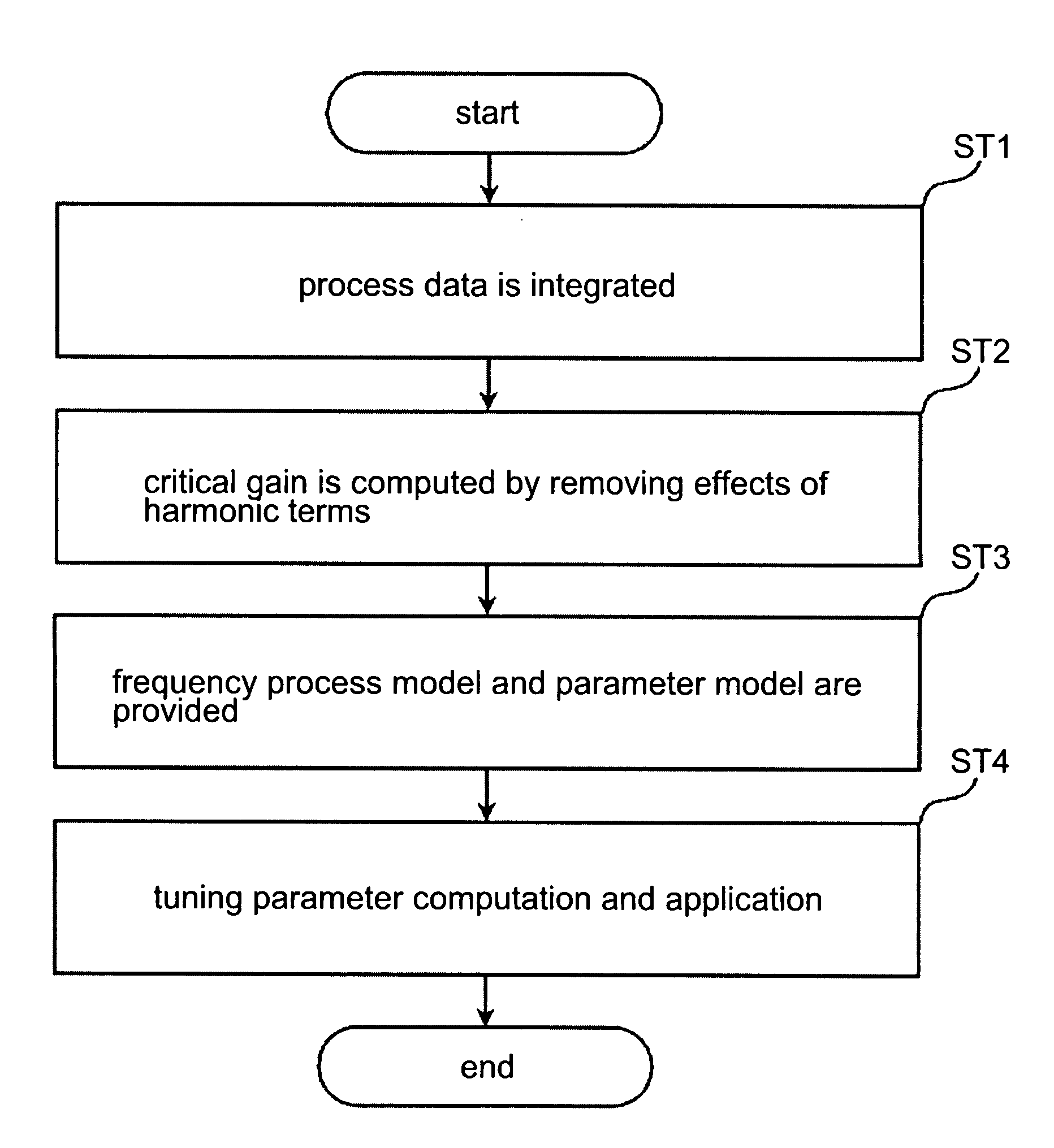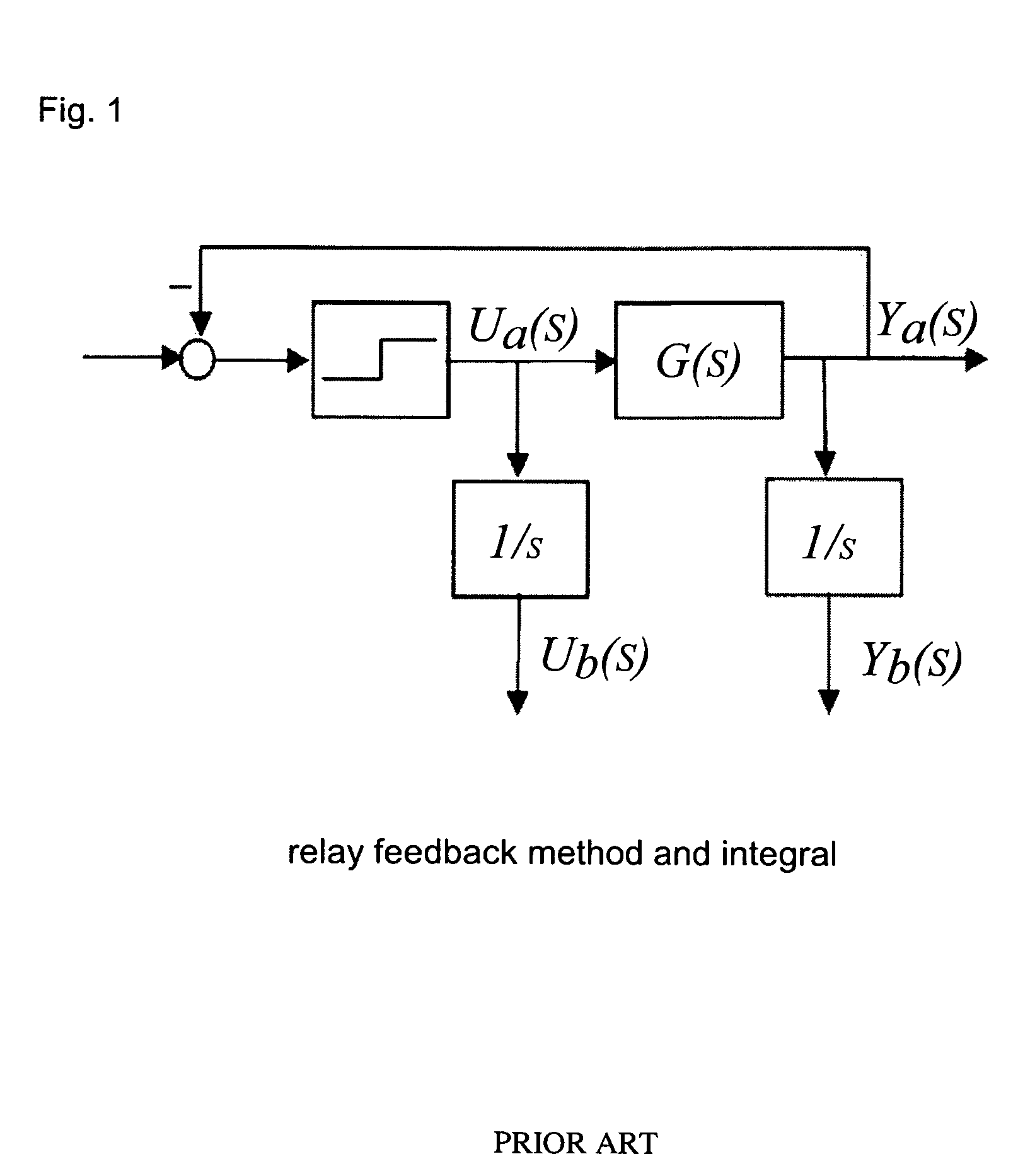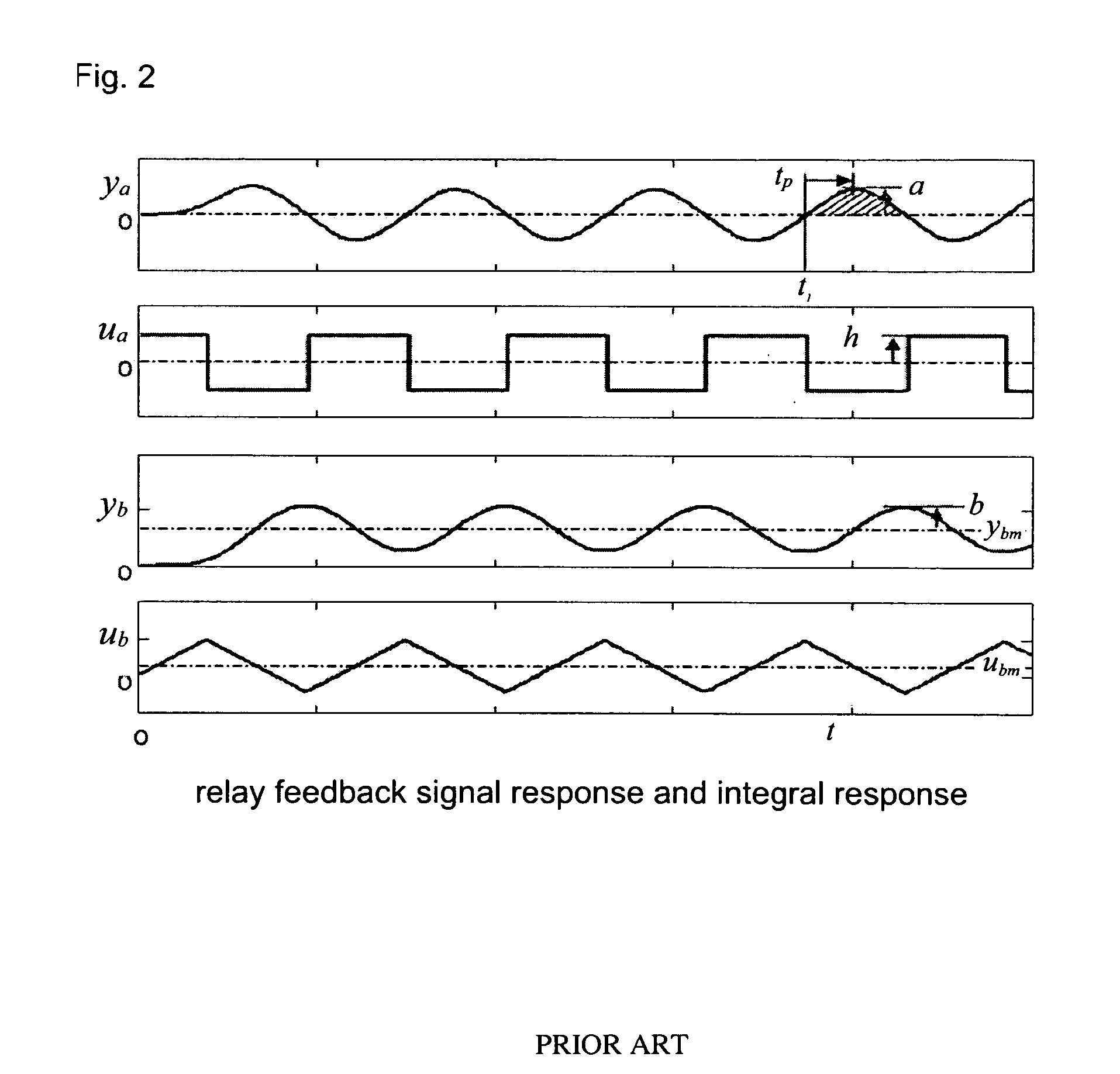Autotuning method using integral of relay feedback response for extracting process information
a technology of relay feedback and process information, applied in adaptive control, instruments, electric controllers, etc., can solve the problems of inability to provide acceptable robustness of methods based only on cyclic steady state data, incomplete transient response storage, and somewhat complex computations
- Summary
- Abstract
- Description
- Claims
- Application Information
AI Technical Summary
Benefits of technology
Problems solved by technology
Method used
Image
Examples
Embodiment Construction
[0058]The autotuning method using an integral of a relay feedback response according to an embodiment of the present invention will be described with reference to the accompanying drawings.
[0059]FIG. 2 is a view for describing a conventional relay feedback signal response and integral response, and FIG. 3 is a flow chart of an autotuning method using an integral of a relay feedback response according to an embodiment of the present invention.
[0060]As shown therein, an autotuning method using an integral of a relay feedback response comprises: the first step(ST1) for integrating a process data; and the second step(ST2) for removing any effects of harmonics after the first step and computing an ultimate gain.
[0061]The autotuning method using an integral of a relay feedback response further comprises the third step(ST3) for providing a frequency process model and a parameter model after the second step.
[0062]As shown in FIG. 4, the third step comprises a step 3-1(ST3-1) for setting a s...
PUM
 Login to View More
Login to View More Abstract
Description
Claims
Application Information
 Login to View More
Login to View More - R&D
- Intellectual Property
- Life Sciences
- Materials
- Tech Scout
- Unparalleled Data Quality
- Higher Quality Content
- 60% Fewer Hallucinations
Browse by: Latest US Patents, China's latest patents, Technical Efficacy Thesaurus, Application Domain, Technology Topic, Popular Technical Reports.
© 2025 PatSnap. All rights reserved.Legal|Privacy policy|Modern Slavery Act Transparency Statement|Sitemap|About US| Contact US: help@patsnap.com



